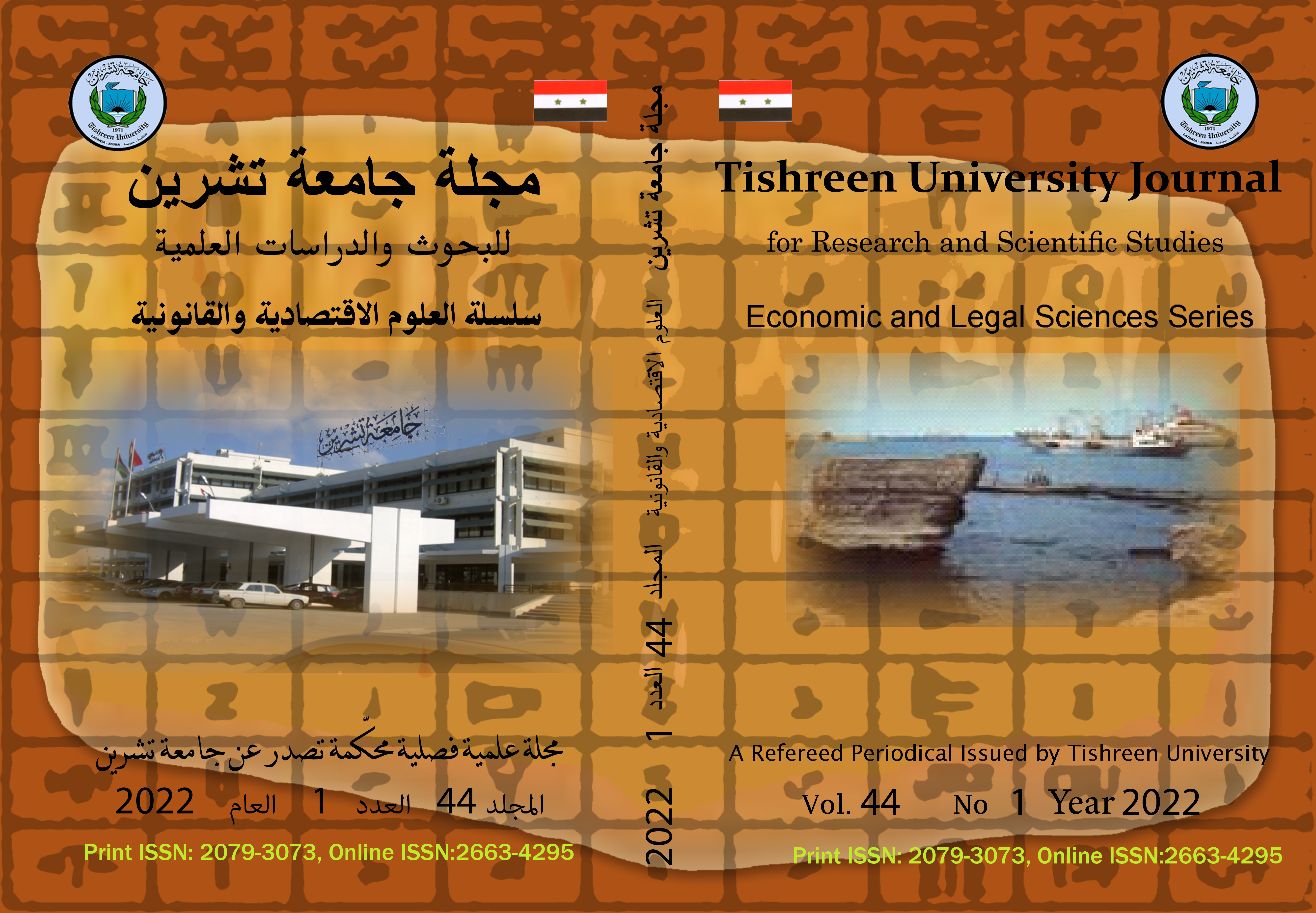The Relationship Of The UN Security Council With The International Criminal Court In The Light Of The Rome Statute
Abstract
The international community has suffered many international crimes , where are war crimes , genocide and crimes against humanity have become a major obstacle facing the conscience and values of humanity , The first and second world wars witnessed a criminal environment in which crimes of great gravity were committed against humanity , and the temporary courts that were established by decision from the UN Security Council , based on its powers stipulated in Chapter VII , paved the way for the establishment of the International Criminal Court as a permanent international judicial body governed by the Rome Statute as a result of its failure to achieve criminal justice
It should be noted that the issue of the relationship between the UN Security Coucil and the International Criminal Court occupied a wide area of discussion during the Preparatory Committees for the establishment of the Criminal Court
Due to the different nature of the work of the United Nations Security Coucil , as it is considered a political organ concerned with political matters in the international community , while the International Criminal Court is an independent judicial organ from the United Nations , despite that the UN Security Council was granted broad powers under the Rome Statute Basically based on the Charter of the United Nations
Authorizing the Security Council to take measures that it deems appropriate to maintain international peace and security , especially that the crimes that the International Criminal Court is concerned with may constitute the greatest threat to international peace and security this calls for the intervention of the UN Security Council , The relationship between the UN Security Council and the International Criminal Court is nothing but an extension of its powers under Chapter VII of the Charter of the United Nations , There is no doubt that these broad powers have sparked controversy over the effects of these powers on the court’s mechanism of work.
Will the Security Council , which is a political organ , have a positive role that contribubutes to activating the court’s activity in prosecuting the perpetrators of international crimes , or will it have a negative role that disrupts the work of the court ?
Downloads
Published
How to Cite
Issue
Section
License

This work is licensed under a Creative Commons Attribution-NonCommercial-ShareAlike 4.0 International License.
-
The authors retain the copyright and grant the right to publish in the magazine for the first time with the transfer of the commercial right to Tishreen University Journal of Research and Scientific Studies - Economic and Legal Sciences
Under a CC BY- NC-SA 04 license that allows others to share the work with of the work's authorship and initial publication in this journal. Authors can use a copy of their articles in their scientific activity, and on their scientific websites, provided that the place of publication is indicted in Tishreen University Journal of Research and Scientific Studies - Economic and Legal Sciences . The Readers have the right to send, print and subscribe to the initial version of the article, and the title of Tishreen University Journal of Research and Scientific Studies - Economic and Legal Sciences Publisher
-
journal uses a CC BY-NC-SA license which mean
You are free to:
- Share — copy and redistribute the material in any medium or format
- Adapt — remix, transform, and build upon the material
- The licensor cannot revoke these freedoms as long as you follow the license terms.
-
Attribution — You must give appropriate credit, provide a link to the license, and indicate if changes were made. You may do so in any reasonable manner, but not in any way that suggests the licensor endorses you or your use.
-
NonCommercial — You may not use the material for commercial purposes.
-
ShareAlike — If you remix, transform, or build upon the material, you must distribute your contributions under the same license as the original.
- No additional restrictions — You may not apply legal terms or technological measures that legally restrict others from doing anything the license permits.

